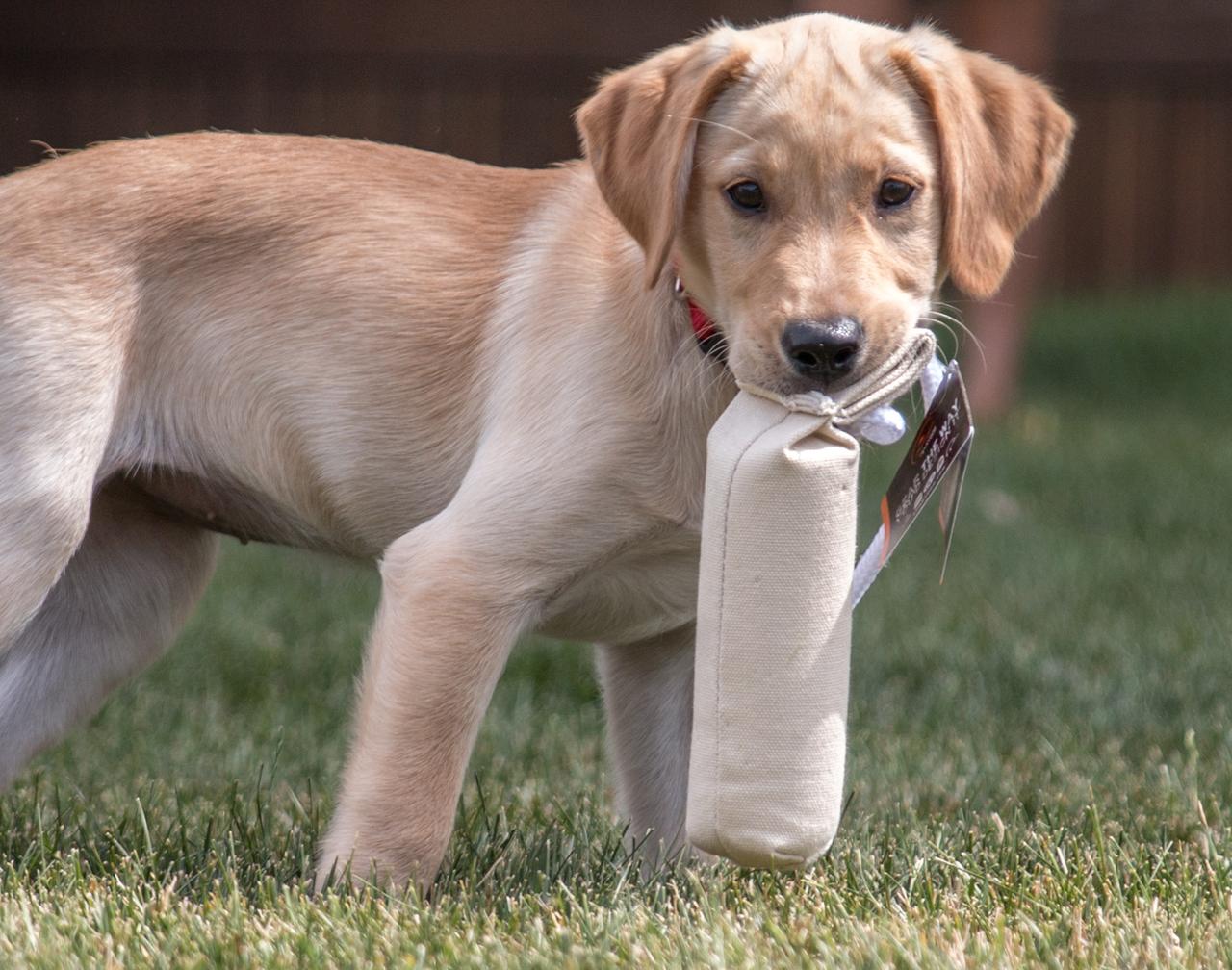
3 Ways You’re Ruining Your Gun Dog Puppy
Posted by Greg McGuffinOwners of puppies make countless training mistakes. They may not know it initially, but it’s the little things that separate professional trainers from owners that dabble in training. As a professional trainer, I’ve see every type of misguided puppy and spent countless hours undoing bad habits.
Commonly, when a 6-month-old puppy comes to me for training, some of the biggest issues I end up dealing with are habits that were created by the owners. These bad habits aren’t done intentionally, but are typically created by the interactions the owner and family had with their puppy.
Below are 3 things not to do with your puppy:
Chase It
Puppies love to play chase. They are young, youthful spirits that constantly crave a game. As owners, we must teach the puppy to play chase on our terms. The training mistake occurs when training puppies to retrieve a dummy. Commonly, instead of coming to you with the dummy, puppies will try to avoid you in an attempt to incite the chase. Chase is a fun game for them to play, but not much fun for you as the owner.
The worst thing you can do at that point is chase the puppy. Instead, clap your hands. Attempt to get the dog excited and then start backing away from it, encouraging it to chase you. Once you get it to come back to you a couple of times in a row, it’s time to stop that training session.
Be sure to wait a few hours before you pick up where you let off. Repeat this pattern until the puppy realizes that you are the leader and aren’t going to chase him or her. This is essential in establishing that fact that you are in control during training sessions and aren’t willing to play on the dog’s terms.
Play Tug-of-War
Tug-of-War is a great game, but it can spell doom for training. Everyone thinks it’s cute to see puppy tug at the end of a rope or toy and thrash their little head trying to pull the toy from your hands. If you aren’t careful, this behavior will carry over into your daily training.
I’ve seen finished dogs come back to the line and refuse to release their bird. This behavior can be traced back to playing tug of war as a puppy. The fix is pretty easy. If the puppy starts pulling at a toy… give it to him or her – don’t engage in the game. When the puppy is retrieving for you, make it sit before you attempt to take the bumper. Use your finger to pry open their mouth and take the bumper away. Be careful not to get mad and always reward the puppy when it finally lets the bumper go. Praise it for a good job and end the training session.
Reward Undesired Behavior
A reward can be anything from a treat, to a pat on the head, but only reward the behaviors you desire. One common mistake is the “accidental reward.” For example, a puppy jumps on someone and that someone rubs the puppy’s ears. What did the puppy just learn? If I jump on you, you will rub my ears. The correct response is to tell the dog to sit … then rub its ears – now you’re rewarding a desired behavior. Eventually, the puppy will run to you, plant its tail on the ground and eagerly await your praise.
I encourage you to consult with a professional trainer if you’ve recently purchased a puppy, or if your young dog shows behaviors that are inconsistent with what you want. You can also visit the SportDOG® YouTube channel for training videos, as well as check out more hunting-dog training tips in the Hunting & Education section.
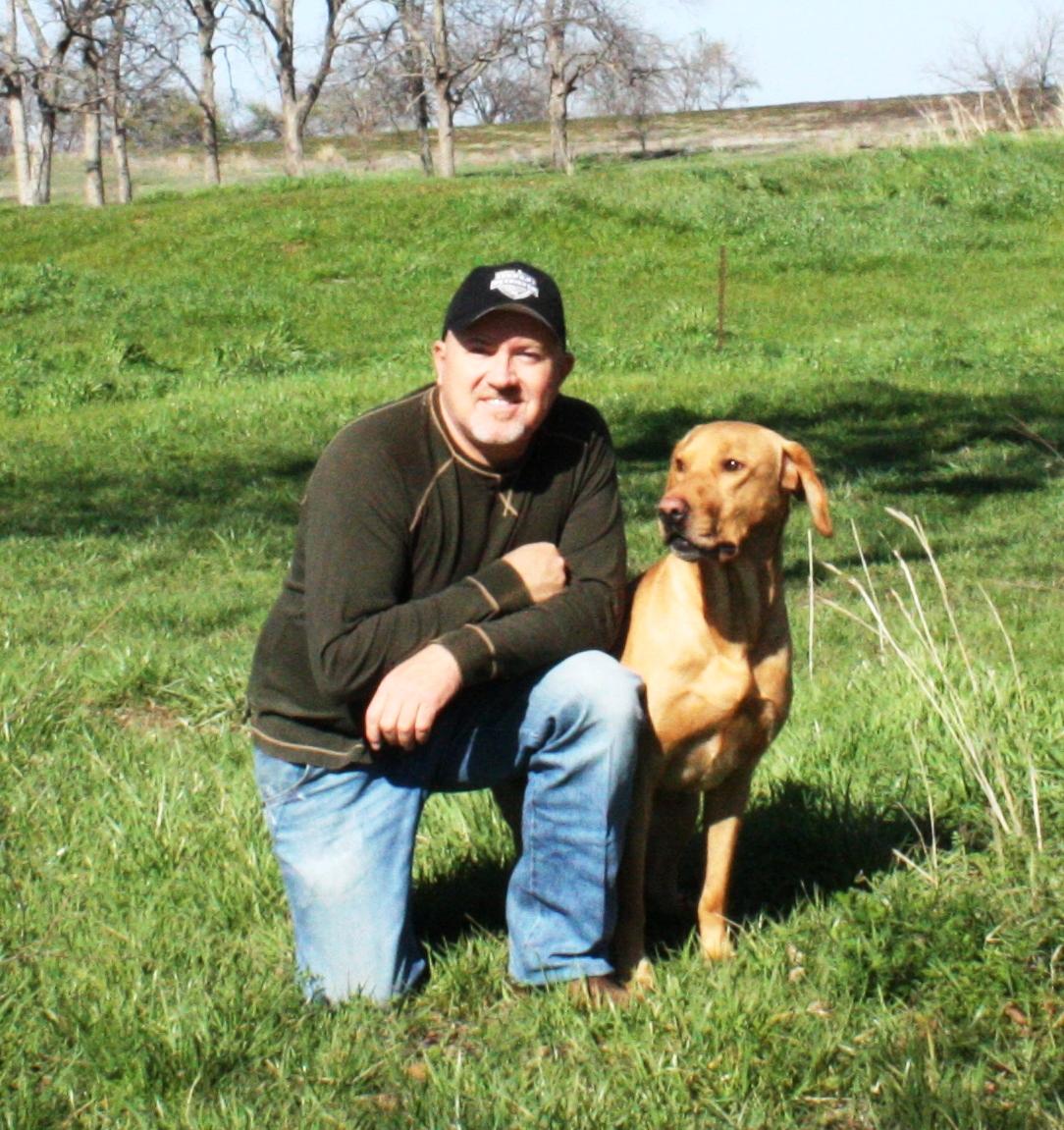
Greg McGuffin
South Central Oklahoma
Greg McGuffin has been professionally training hunting dogs for 8 years. 3 years ago he and his family sold their house in Tulsa, Oklahoma and decided to dive head first into Retriever Training. They now live on the 2,000 acre family ranch in south central Oklahoma where Greg, his wife,...
Related Products
Heel Stick
Orange Check Cord
Related Articles
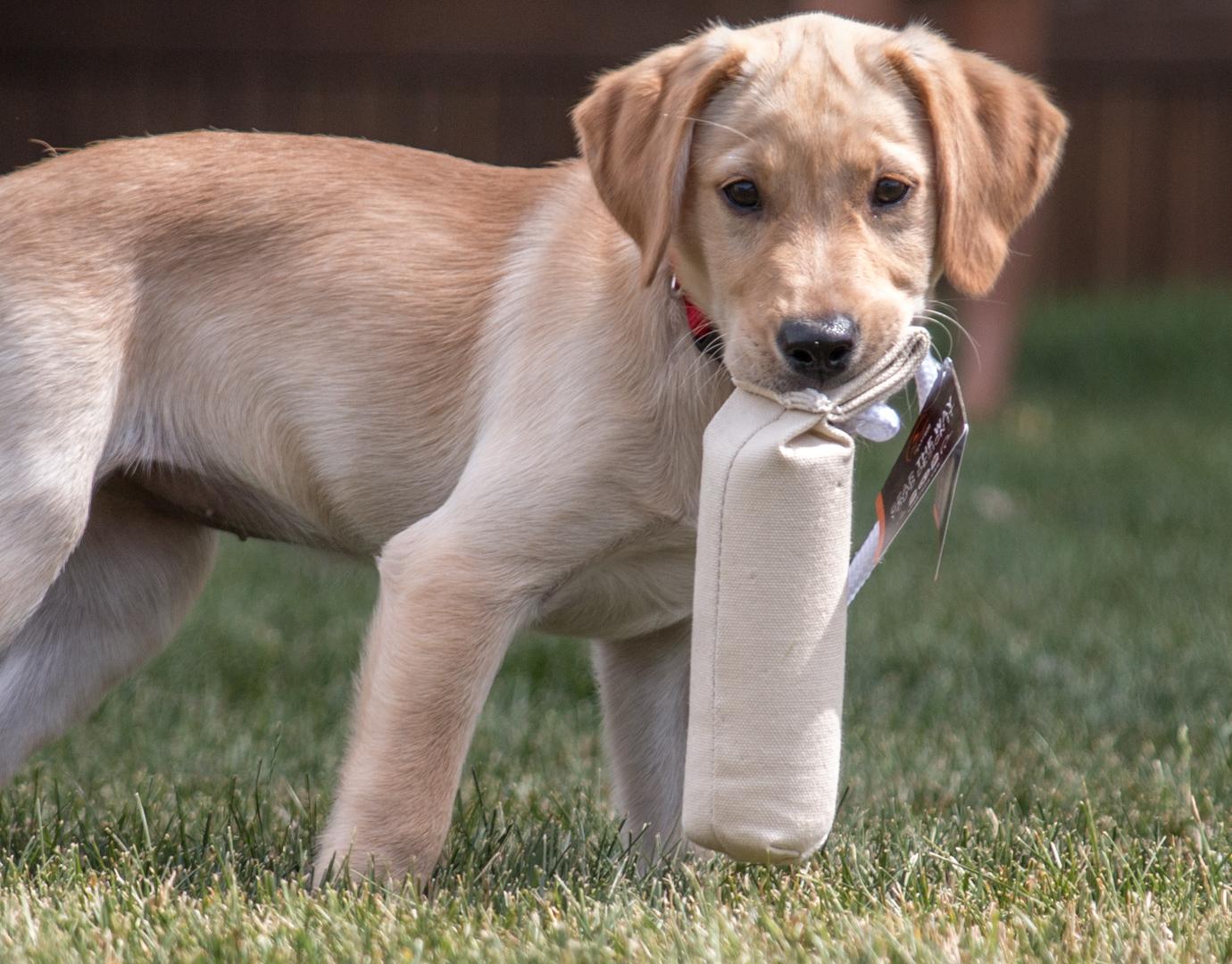
Training Your Retriever to Dummies
by The SportDOG Staff
Training a retriever can be one of the most rewarding experiences any hunter can have. There are no secrets involved: just patience, repetition, perseverance, consistency and the ability to anticipate reaction. In short, the trainer needs to be just a little smarter than his pupil. This is not always as...
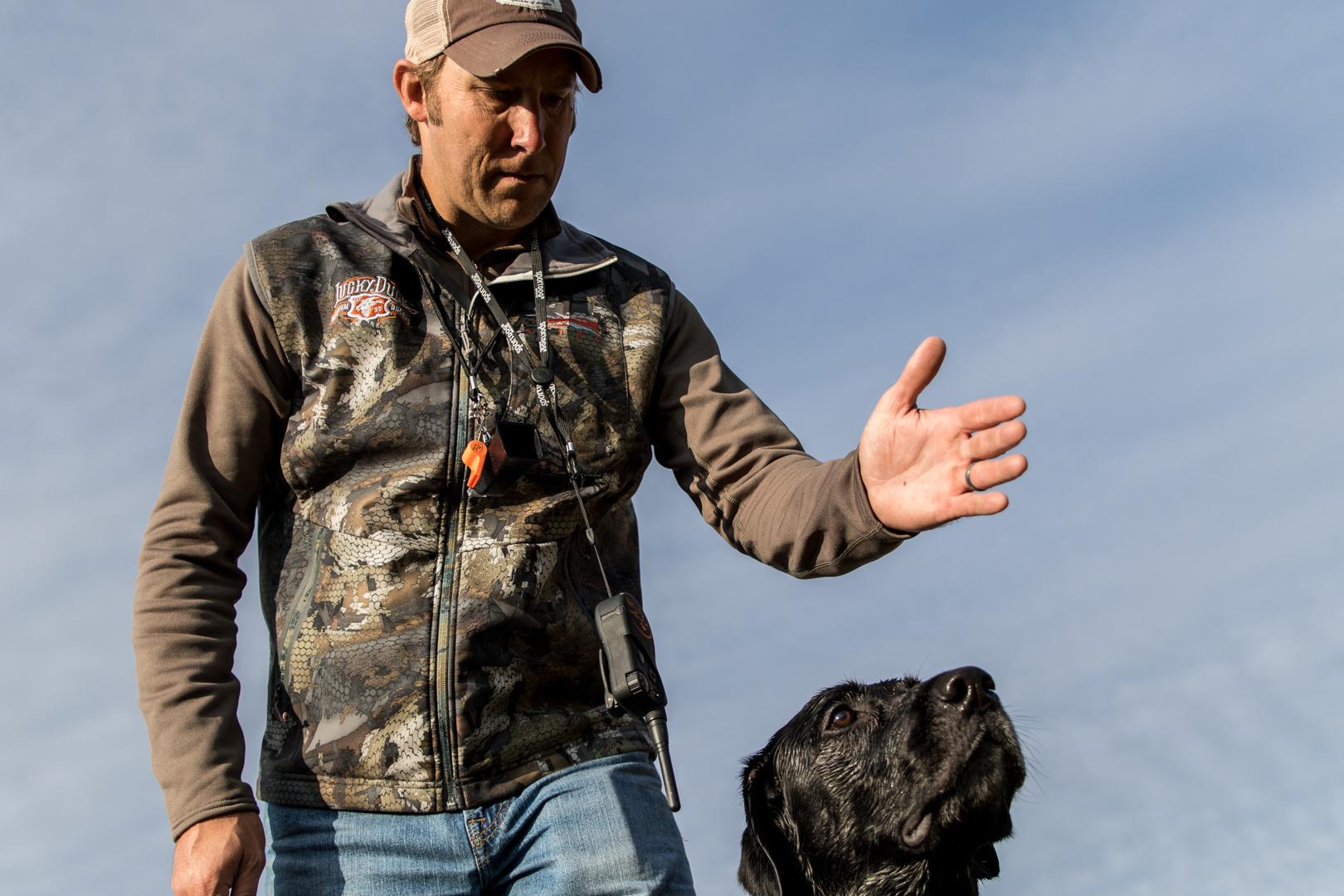
10 Mistakes in Gun Dog Training and How Not to Make Them - Part 1
by The SportDOG Staff
The best thing about the years that ourselves and our ProStaffers have spent training dogs is that we've made the mistakes. We preach the value of mistakes because you will learn from them even more than your successes, but there's no reason you can't learn from ours. We constantly hammer...
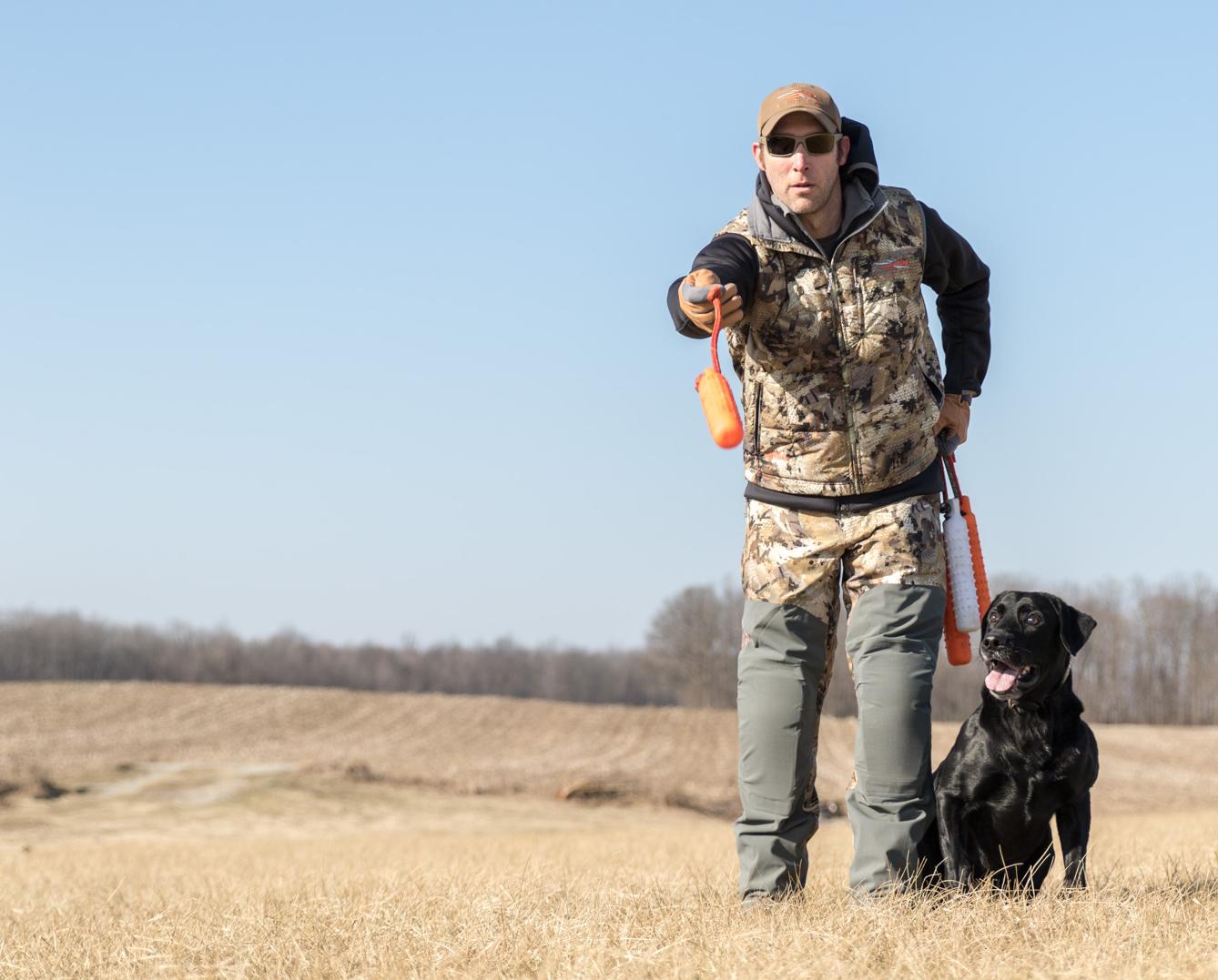
10 Mistakes in Gun Dog Training and How Not to Make Them - Part 2
by The SportDOG Staff
Read the first 5 mistakes to avoid with hunting dog training in the first article in this series. Not Adapting to the Dog No two dogs are exactly the same. Like children, they all learn differently, have differing strengths and have that free-will thing that can leave you grinding your teeth in...


